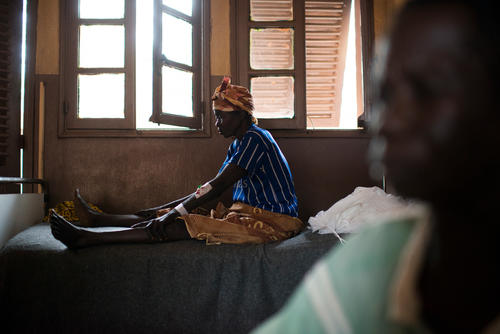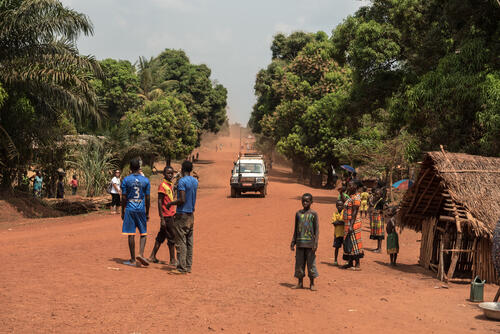Fighting resumed early this morning in Zemio, a town in the east of the Central African Republic (CAR), where combats took place from Wednesday 28 to Friday 30 June.
The violence has displaced between 15,000 and 20,000 people. More than 4,000 sought refuge at the health centre, 5,000 at the Catholic mission, and between 6,000 and 11,000 others fled to different sites around the town.
Only eight wounded made it to the health centre, but the team from Médecins Sans Frontières (MSF) has heard of many others blocked in different neighbourhoods, unable to reach the medical facility because of the presence of armed men in the town.
“The neighbourhood next to our base has been burned down, as have other parts of the town. We were able to work this weekend to provide medical aid and logistical support to the most vulnerable, but the fighting started again this morning,” says Mia Hejdenberg, MSF head of mission.
“We want to remind all the combatants of the need to respect a humanitarian space so that people who are not involved in the conflict can receive basic necessities.”
Last Wednesday and Thursday, the intensity of the fighting blocked the MSF team inside Zemio health centre, but on Saturday 1 July, the organisation chartered a plane to bring medical equipment, drugs and non-food items such as plastic sheeting, portable latrines and soap. Currently, the most urgent needs are water, food, shelters and medical care.
"The inhabitants of Zemio had no time to take anything with them when the shooting started on Wednesday morning,” says Claude Bitaronga, head of MSF medical activities in Zemio.
“At the health centre, they grouped together in all the inpatient and consultation rooms, in hangars and behind any wall they could find to shelter from the bullets. After a few hours, children started crying because they were hungry. ”
MSF distributed water to the displaced at the health centre, the church, the sub-prefecture and the Catholic mission. The medical team set up mobile clinics and conducted 70 consultations between Sunday and Monday, mainly for cases of malaria. Staff also distributed food supplements to children who were beginning to suffer from hypoglycaemia. MSF activities have been temporarily suspended when the fighting resumed this morning.
“The Zemio area has been relatively quiet over the past few years, which is why there are very few humanitarian workers there with the capacity to respond to this emergency,” says Mia Hejdenberg.
Médecins Sans Frontières (MSF) manages a dozen projects in the Central African Republic. MSF has worked in Zemio since 2010 and is currently running an HIV/AIDS community-based care project that is benefitting 1,400 people living with the virus.





